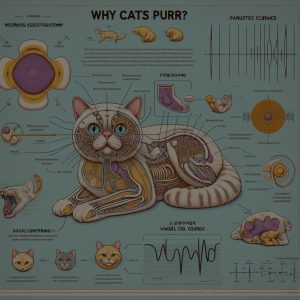
Feline allergies are a common concern for many cat owners, as they can greatly impact the quality of life for both the cat and its human companions. Understanding the causes, symptoms, and treatment options for feline allergies is crucial for effectively managing this condition. In this article, we will explore the ins and outs of feline allergies, from common triggers to effective treatment options.
Understanding Feline Allergies
Feline allergies occur when a cat’s immune system overreacts to a specific substance, known as an allergen. Common allergens for cats include pollen, dust mites, certain foods, and even flea saliva. When a cat comes into contact with an allergen, its immune system releases chemicals that can cause a range of symptoms, from sneezing and coughing to itching and skin rashes. It is important to note that feline allergies are not limited to outdoor allergens; indoor allergens such as mold and cigarette smoke can also trigger allergic reactions in cats.
Common Symptoms and Triggers
Symptoms of feline allergies can vary from mild to severe, depending on the individual cat and the allergen involved. Common symptoms include sneezing, coughing, watery eyes, itching, and skin rashes. In some cases, feline allergies can also manifest as gastrointestinal issues, such as vomiting and diarrhea. Identifying the specific allergen that is triggering your cat’s symptoms can be challenging, as cats can be allergic to multiple substances. Common triggers for feline allergies include pollen, dust mites, certain foods, and fleas.
Effective Treatment Options
Managing feline allergies often involves a combination of environmental changes, medication, and sometimes dietary adjustments. One of the most effective ways to manage feline allergies is to reduce exposure to the allergen. This may involve keeping your cat indoors during peak pollen seasons, using hypoallergenic bedding, and regularly cleaning your home to reduce dust mites. In some cases, your veterinarian may recommend antihistamines or corticosteroids to help alleviate your cat’s symptoms. In severe cases, allergy shots (immunotherapy) may be recommended to help desensitize your cat’s immune system to a specific allergen.
By understanding the causes, symptoms, and treatment options for feline allergies, you can help your beloved feline companion live a happier, healthier life. If you suspect that your cat may be suffering from allergies, it is important to consult with your veterinarian for an accurate diagnosis and tailored treatment plan. With proper management and care, you can help your cat thrive despite its allergies.
Certainly! Here’s a new, SEO-friendly paragraph incorporating external embedded links to related Wikipedia articles: — You might be interested in exploring some additional resources on related topics. For a broader understanding of allergic reactions, you can read more about the hypersensitivity of the immune system. If you want to delve deeper into the substances that often trigger allergic reactions, consider checking out information on pollen and dust mites. Additionally, fleas and their impact on pets are discussed in detail on the flea Wikipedia page. Finally, for those considering advanced treatment options, you might be interested in learning more about immunotherapy. — This format maintains a natural flow while providing valuable hyperlinks for further reading.










